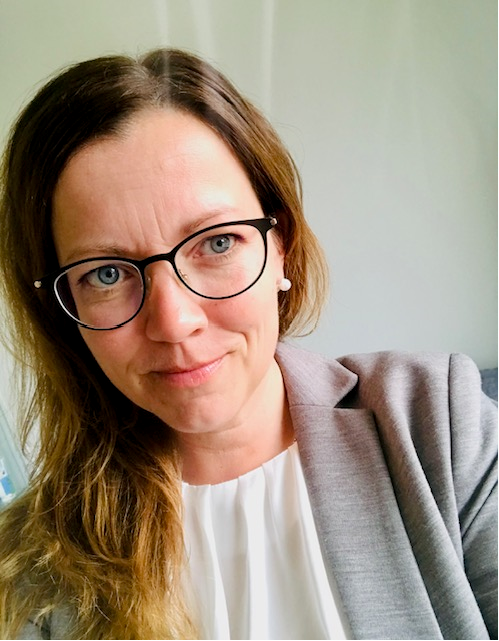Keynote Speakers
"Forming a common pedagogical understanding through play and encounters"
Hanna-Máret Outakoski, senior lecturer, the Department of Language Studies, Umeå University, and UiT Arctic University of Norway, Tromsø
Dr. Hanna-Máret Outakoski is senior lecturer at the Department of Language Studies at Umeå University, Sweden, and at Arctic University of Norway in Tromsø. She is currently doing research on the role of play in heritage language teaching and on the early literacy practices in heritage language pre-schools. One of the aims of the current collaborative research is to strengthen the language didactics that is based on local language practices and community needs. Her earlier research is on teaching of heritage language writing in Sámi school contexts. Other research interests lie on North Sami grammar and syntax, as well as on the possibilities and potential of using virtual worlds and virtual classrooms for language revitalization.
Abstract
Play and language in Sápmi is a subproject within a large international study called NOWPLAY2. Over a five-year period, this project follows the efforts of a group of Sámi teachers in the Swedish Sápmi where the language has a relatively marginalized position, both in school and in society. In the geographic area of the study, several Sámi languages are spoken and also the participating teachers are speakers of different Sámi languages. Through action research periods and play meetings, teachers generate a common pedagogical understanding and work model, which is needed in an area where the children and youth experience and witness a wide range of conflicts. Through the play project, the Sámi teachers have also been able to examine the different forms and categories of play, the understanding of which requires both western theories and Indigenous world views. Meetings with other Indigenous teachers have also reinforced the teachers’ opinion that the pedagogical approaches should be based on local needs. In the course of the project an idea of a “Living language always on land” has been formed, which emphasizes the dynamic aspects of language use in its natural context instead of focusing on petrified ceremonial practices.
"Learning and assessment through dialogue - a practical approach"
Stine Aarønes Angvik, assistant professor, the Norwegian Centre for Writing Education and Research, Department of Teacher Education, NTNU, Trondheim
Stine Aarønes Angvik is assistant professor at the Norwegian Centre for Writing Education and Research (The Writing Centre), Department of Teacher Education, NTNU, Trondheim. Angvik has experience from school since 1998. One of her most important tasks is to assist municipalities and county councils with school-based competence development related to topics such as writing training, assessment and school management.
Abstract
The keynote is based on the article "Learning and assessment through dialogue" and highlights the importance of assessment for pupils' learning and for teaching design in schools (Hopfenbeck et al., 2013; Fjørtoft & Sandvik, 2016). Despite increased attention to assessment in the education system for over 15 years, the implementation of the principles related to assessment for learning is still a challenging task for many teachers, and students feel that they do not receive good enough guidance on how to improve their professional competence (Sandvik et al., 2021; Sandvik et al., 2022).
The keynote speech argues that assessment should be understood as an integral part of learning, and this point of view is supported by the current assessment regulations, but also previous research that emphasizes assessment for learning as a pedagogical approach (Black & Wiliam, 1998b). This means that assessment is not only about measuring achievements, but also about supporting the pupils' development and reflection on their own learning. In the extension of this understanding, issues relating to the use of grades and overall assessment during the course in secondary schools and upper secondary schools are discussed.
In order to meet the challenges that arise in the meeting between theory and practice, there is a need for a common assessment language among teachers, which is created through cooperation and dialogue between teachers and school leaders (Sandvik, 2022). The dialogue in the classroom, with the students, is also an important tool for learning, and is linked to the importance of the conversation for the students' development of thinking and language (Alexander, 2008). In order to improve assessment practices in schools, and create a common language about assessment, students should be more involved in the assessment process, including peer assessment and self-assessment. The teacher's feedback and the quality of this is also central to the student's learning because it affects the student's motivation and academic performance and results (Hattie & Timperley, 2007).
In this post, the "circle for teaching and learning" is presented as a tool that can help teachers integrate assessment into teaching. The model involves incorporating assessment as part of dynamic classroom processes, where students and teachers build subject knowledge together, deconstruct model texts, construct texts together and finally adopt strategies to master individual tasks. The model can help teachers to create an integrated whole where teaching, learning and assessment are intertwined. This is best achieved by opening up dialogue in the classroom and involving students in decision-making processes related to assessment.
“Doing research together – developmental narratives from the kindergarten everyday life”
PhD Jaana Juutinen, University lecturer, Faculty of Education and Psychology, University of Oulu, Finland
PhD Jaana Juutinen is University lecturer at Faculty of Education and Psychology, University of Oulu, Finland. Jaana Juutinen is an enthusiastic researcher on early childhood education and childhood studies. She has been working as a researcher in three international research projects on children’s belonging and values education on early childhood education settings, in close collaboration with ECE staff (funded by NordForsk and Academy of Finland). Especially, her research interest includes child perspective studies and ethical and methodological issues related to conduct research with children. She has expertise on ethnographic and visual approach with children, as well as narrative and participatory methodology on studying ECE teacher’s work in the northern context.
She works as a program director of early childhood education at the university of Oulu, Finland. Currently one of the early childhood education teacher education programs emphasises Sámi language and culture. Also, she works as a national team leader in the NordForsk funded research project “EXPECT”: “Exploring practices in early childhood of tomorrow develop resilience in social sustainable childhoods after Covid-19”. She is a board member in the Finnish Society for Childhood Studies and Barn – forskning om barn og barndom i Norden journal.
Abstract
Methodologically, the project developed narrative ethnography and participatory action research together with educators, leaders, and children (see Gubrium & Holstein, 2008). Previous research emphasizes the use of narratives to support critical reflection in educational settings (Heikkinen, Huttunen, Syrjälä, & Pesonen, 2012; Keränen, Juutinen & Estola, 2017). In the project, we aimed to challenge and encourage the educators and leaders of the kindergarten to reflect on daily practices, everyday narration, and values in relation to children’s belonging and exclusion.
In this keynote, I will share narratives from this joint four-year path and shed light on encounters with participants. Also, I will open developed research practices to enhance collaboration between university and kindergarten’s staff as well as meaningful perspectives in relation to pedagogical practices and leadership in early childhood education.


